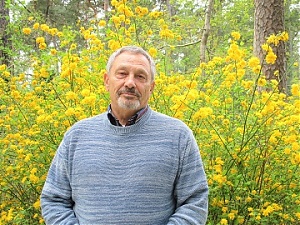Analytics, EU – Baltic States, Financial Services, Funds, Good for Business, Lithuania, Modern EU, Technology
International Internet Magazine. Baltic States news & analytics
Monday, 29.12.2025, 09:28
Uniting finances and innovation: fintech hub in Lithuania with the EBRD’s support
 Print version
Print version |
|---|
The hub, called Rockit,
will promote fintech and tech-centric innovation and contribute to Lithuania’s
goal of becoming a leading regional fintech centre in Europe. Through the
partnership, the EBRD will facilitate start-up access to operational
facilities, to early stage funding and to superior mentoring network as well as
to support the development of new initiatives at the hub.
Another leading Estonia-based business-to-business
accelerator in Europe, Startup Wise Guys,
is also taking part with Swedbank to support the newly re-launched hub. They
will seek to foster development by providing seed capital, office space and
growth guidance. Rockit’s
predecessor, Rise Vilnius, was
established in 2016 by Barclays Group Operations Centre Lithuania and now
acquired by Swedbank with the aim to strengthen the national startup sector.
Bottom-line: the
three partners: EBRD, Swedbank Lithuania
and Startup Wise Guys agreed to support startups in Lithuania; Rockit hub would foster fintech and
tech-focused innovative solutions; the “partnership” in general is expected to
strengthen the innovative sector and would help to activate the Lithuanian position
as a regional fintech leader.
Supporting startups: the EBRD’s role
The EBRD has been working in Lithuania since 1991; since
then, it invested €877 mln in 90 projects. The EBRD’s priorities in the country
are to strengthening Lithuania’s regional and global competitiveness through
engagement in advanced technologies as well as developing capital markets and
the circular and green economy.
Hence, the EBRD’s role in Baltics’ progressive growth is
fundamental; the EBRD is a multilateral bank that promotes the development of
the private sector and entrepreneurial initiative in 38 different global economies
across three continents.
The Bank is owned and financed by 68 countries as well as the EU and the EIB.
EBRD investments are aimed at making the economies in the
member states and regions competitive, inclusive,
well-governed, green, resilient and integrated. Below is a short
deliberation of the bank’s approaches to the general and fintech investment:
- As to
the “competitive market economy”, the
EBRD’s vision is to support the market structures that ensure entrepreneurial competition
with having both enough players and rule-making, which makes it easy to enter the
market.
- The “capacity’s
approach” fosters generating added value by producing more and/or innovate.
- Supporting incentives to compete and advance is based on cooperation
between the private-sector management and public entities providing the
governance that ensures commercially sound decision-making.
More on competitive issues in: https://www.ebrd.com/transition/competitive.html
- As to the “inclusive
market economy”, the bank’s efforts are to ensure that anyone (regardless
of the gender, origin, age, socio-economic conditions, etc.) could have access to
labour markets and entrepreneurship; i.e. it’s about increasing economic
opportunities, promoting an inclusive market-based system and an efficient
allocation of human resources.
More on the transition issue in: https://www.ebrd.com/transition/inclusive.html
EBRD’s good governance’s concept
The general EBRD’s initiatives on governance stem from the
bank’s 2014 initiative, which defined the concept of good governance as having
two key denominations: the institutions
and the processes that these institutions employ.
The EBRD’s concept of “well governed” fully reflects the
trend: “governance concerns authority, decision-making and accountability in
all domains. At its core, governance is about the quality of institutions and
the processes that they support.”
More in: https://www.ebrd.com/what-we-do/sectors-and-topics/ebd-icg-initiative.html
To ensure that the concept is aligned with the EBRD’s mandate,
two key pillars are introduced. One is the notion of national
or sub- national economic governance, which refers to the institutions
and processes that support economic activity and economic transactions on
state-wide or sub-national levels.
The other is corporate-level governance,
which relates to the system of rules, practices and processes by which
companies are directed and controlled. While the latter has already been
mainstreamed into the EBRD’s work, the former still offers considerable potential
to be further developed in future project and policy work.
More on governance in: https://www.ebrd.com/transition/well-governed.html
Green dimension
At its foundation, the EBRD integrated the environmental dimension into its core constitutive document. The agreement which established the EBRD stipulated that “the Bank is committed to promoting environmentally sound and sustainable development in the full range of its investment and technical cooperation activities.”
See basic EBRD documents in: https://www.ebrd.com/news/publications/institutional-documents/basic-documents-of-the-ebrd.html
In 2016, the bank explicitly recognized the “green” dimension of environmental sustainability as an integral quality of transition within a sustainable market economy, making plain that economic decisions should reflect the full value of resources to present and future generations.
This “green dimension” is in line with the aspirations of
the international community, expressed in the UN SDGs and Paris-2015 global
agreement on climate change. The “green quality” in the bank’s governance pursues
the ambitious green economy transition approach, including necessary financial
support of about 40 per cent of total EBRD financing by 2020. This will be
achieved by scaling up existing activities (from industrial and municipal
infrastructure energy efficiency to renewable energy and sustainable energy financing
facilities) and through innovation in environmental financing and policy
products.
More on “green transition” in: https://www.ebrd.com/transition/green.html;
General reference:
https://www.ebrd.com/transition/integrated.html








 «The Baltic Course» Is Sold and Stays in Business!
«The Baltic Course» Is Sold and Stays in Business!

